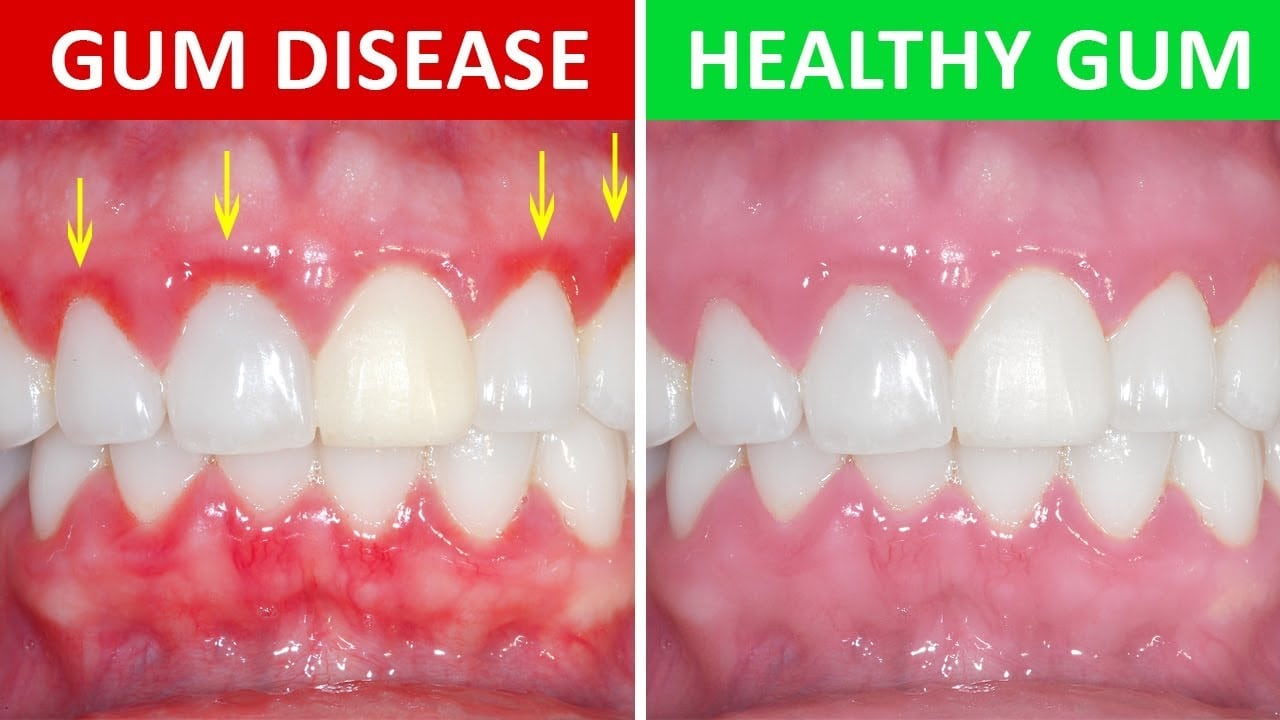Do your gums bleed when you brush or floss? Swollen, bleeding gums aren’t fun. In fact, they are warning signs of gum disease. Our practice provides gum disease treatment in McKenzie Towne to help you achieve healthy gums.
What Are the Risk Factors For Gum Disease?
Various factors that contribute to the development of gum disease, such as:
- Genetics
- Pregnancy
- Smoking
- Broken fillings
- Certain medications
- Crooked teeth
- Diabetes
While these factors do not cause gum disease, they can increase your risk of getting it.
What Causes Gum Disease?
Gum disease is caused by poor oral hygiene. After you eat and drink, an invisible layer forms on your teeth. This layer is called plaque. The plaque can harden to tartar in less than a day. Once tartar has formed, you can no longer remove it at home with regular brushing and flossing. As the tartar and plaque accumulate around and under your gum line, it can cause infection and inflammation leading to gum disease. Gingivitis is the earliest stage of gum disease and can be fully reversed with treatment. However, gingivitis is usually pain-free in the beginning. So, some patients leave gingivitis untreated. Without treatment, gingivitis can slowly develop into a more advanced stage called periodontitis. At this stage, the gums begin to separate from your teeth, and they can become loose.
What Are the Symptoms of Gum Disease?
Did you know that gum disease can be symptom and pain-free? In other cases, you can experience one or more of the following symptoms if you have gum disease:
- Loose teeth
- Increased tooth sensitivity
- Bleeding gums when you brush or floss
- Tender, red, or swollen gums
- Your teeth suddenly look longer than usual
- Change in your bite and how your teeth fit together
- Bad breath that simply won’t go away
If you experience any of the symptoms listed above, they are signs of gum disease. Please contact our dental office in McKenzie Towne to receive treatment as soon as possible. Gum disease is fully reversible when treated early on.
How is Gum Disease Diagnosed?
Your dentist will first examine your teeth and take X-rays. The X-rays will be used to see if any bone has been lost. A small ruler may also be used to measure any “pockets” around your teeth. A pocket is a gap or opening between your teeth and gums. When you have gum disease, your gums pull away from your tooth. Bacteria can then accumulate in the pockets, causing a more serious infection.
How is Gum Disease Treated?
Looking for gum disease treatment near you? Gum disease can be treated in various ways, depending on how serious it is.
Non-surgical Procedures
Dental Cleaning
Your dentist will use special dental tools to clean your teeth and around your gum line to remove all of the plaque and tartar.
Scaling and Root Planing
This is also referred to as a “deep cleaning.” Your dentist will remove the tartar under your gum line and smoothen the rough surfaces. The smooth and clean surface allows your gums to reattach to your teeth.
Medication
Your dentist can recommend an antibacterial or fluoride toothpaste to help reduce the bacteria in your mouth. In addition, a prescription mouthwash can also be recommended to keep your mouth healthy. In more serious cases, antibiotics can be prescribed to reduce inflammation.
Surgical Procedures
Pocket Reduction Surgery
Your dentist will gently lift your gums back to clean your teeth. The gums will then be placed to fit closely around your tooth to minimize spaces where bacteria can hide.
Soft Tissue Grafts
When gum disease progresses, gum recession may occur. This makes your teeth appear longer. Tissues from other areas of your mouth will be placed in the affected area.
How Can I Prevent Gum Disease?
Gum disease can be prevented with good oral hygiene. This means brushing and flossing every day. We also recommend visiting your dentist in McKenzie Towne at least once every six months for a cleaning and checkup. If you have gum disease, early treatment is key. We provide gum disease treatment in McKenzie Towne! Contact us to schedule a consultation.
